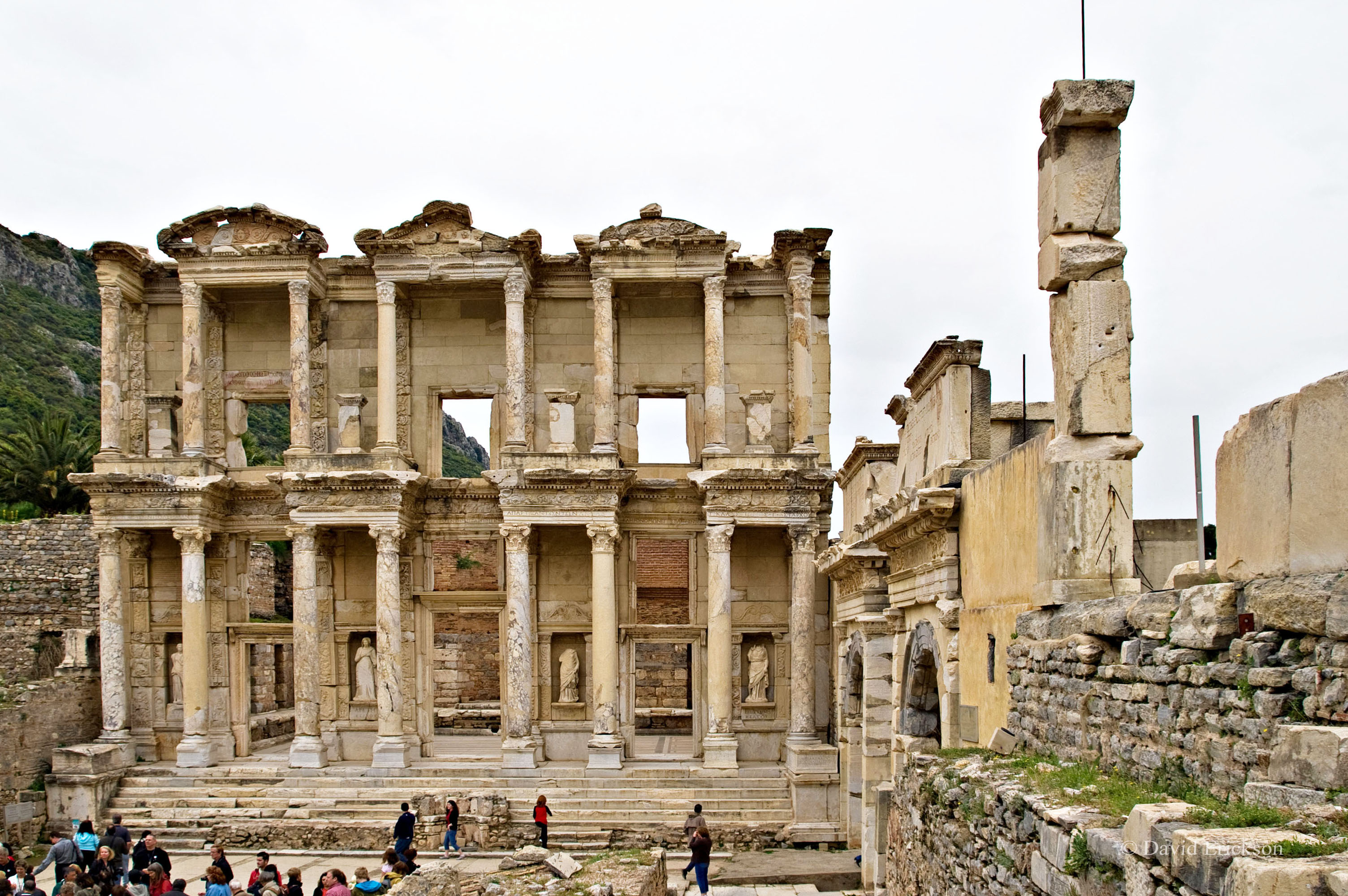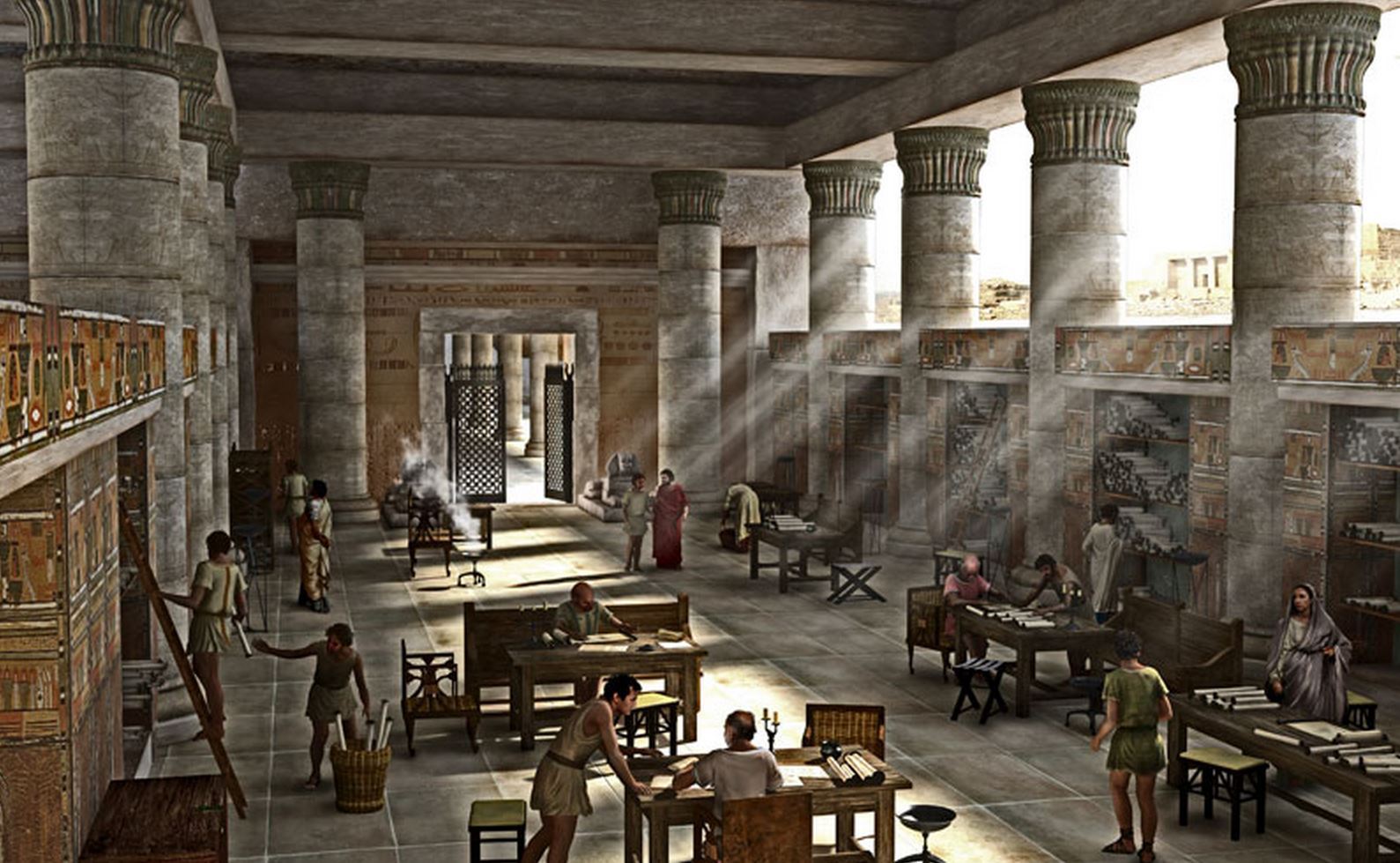FTF: SeabeckTribe
This is no longer a library cache. It is now a loc n loc box. Travel Bugs are welcome here. Please place it back as you found it.

The Royal Library of Alexandria was once the largest in the world. It is usually assumed to have been founded at the beginning of the 3rd century BC during the reign of Ptolemy II of Egypt after his father had set up the temple of the Muses, the Musaeum (whence we get "Museum"). The initial organization is attributed to Demetrius Phalereus. The Library is estimated to have stored at its peak 400,000 to 700,000 scrolls.

Aristotle
One story holds that the Library was seeded with Aristotle's own private collection, through one of his students, Demetrius Phalereus. Another concerns how its collection grew so large. By decree of Ptolemy III of Egypt, all visitors to the city were required to surrender all books and scrolls in their possession; these writings were then swiftly copied by official scribes. The originals were put into the Library, and the copies were delivered to the previous owners. While encroaching on the rights of the traveler or merchant, it also helped to create a reservoir of books in the relatively new city.
The Library's contents were likely distributed over several buildings, with the main library either located directly attached to or close to the oldest building, the Museum, and a daughter library in the younger Serapeum, also a temple dedicated to the god Serapis.

In 2004 a Polish-Egyptian team claimed to have discovered part of the library while excavating in the Bruchion region. The archaeologists claimed to have found thirteen "lecture halls", each with a central podium. Zahi Hawass, president of Egypt's Supreme Council of Antiquities said that all together, the rooms uncovered so far could have seated 5000 students.
One of the reasons so little is known about the Library is that it was lost centuries after its creation. All that is left of many of the volumes are tantalizing titles that hint at all the history lost from the building's destruction. Few events in ancient history are as controversial as the destruction of the Library, as the historical record is both contradictory and incomplete. Not surprisingly, the Great Library became a symbol for knowledge itself, and its destruction was attributed to those who were portrayed as ignorant barbarians, often for purely political reasons.

Much of the debate rests on a different understanding of what constituted the actual Library. Large parts of the Library were likely decentralized, so it is appropriate also to speak of the "Alexandrian libraries". Both the Serapeum, a temple and daughter library, and the Museum itself existed until about AD 400.